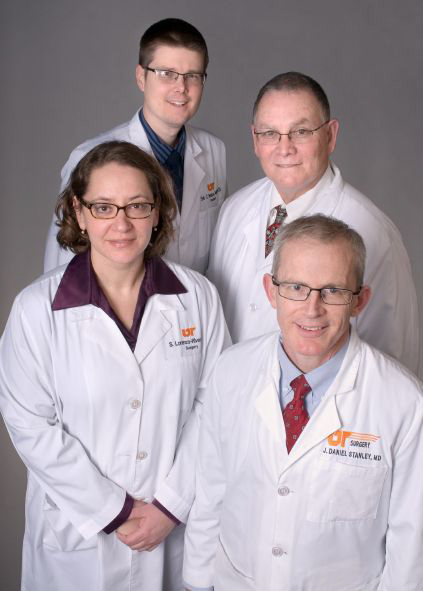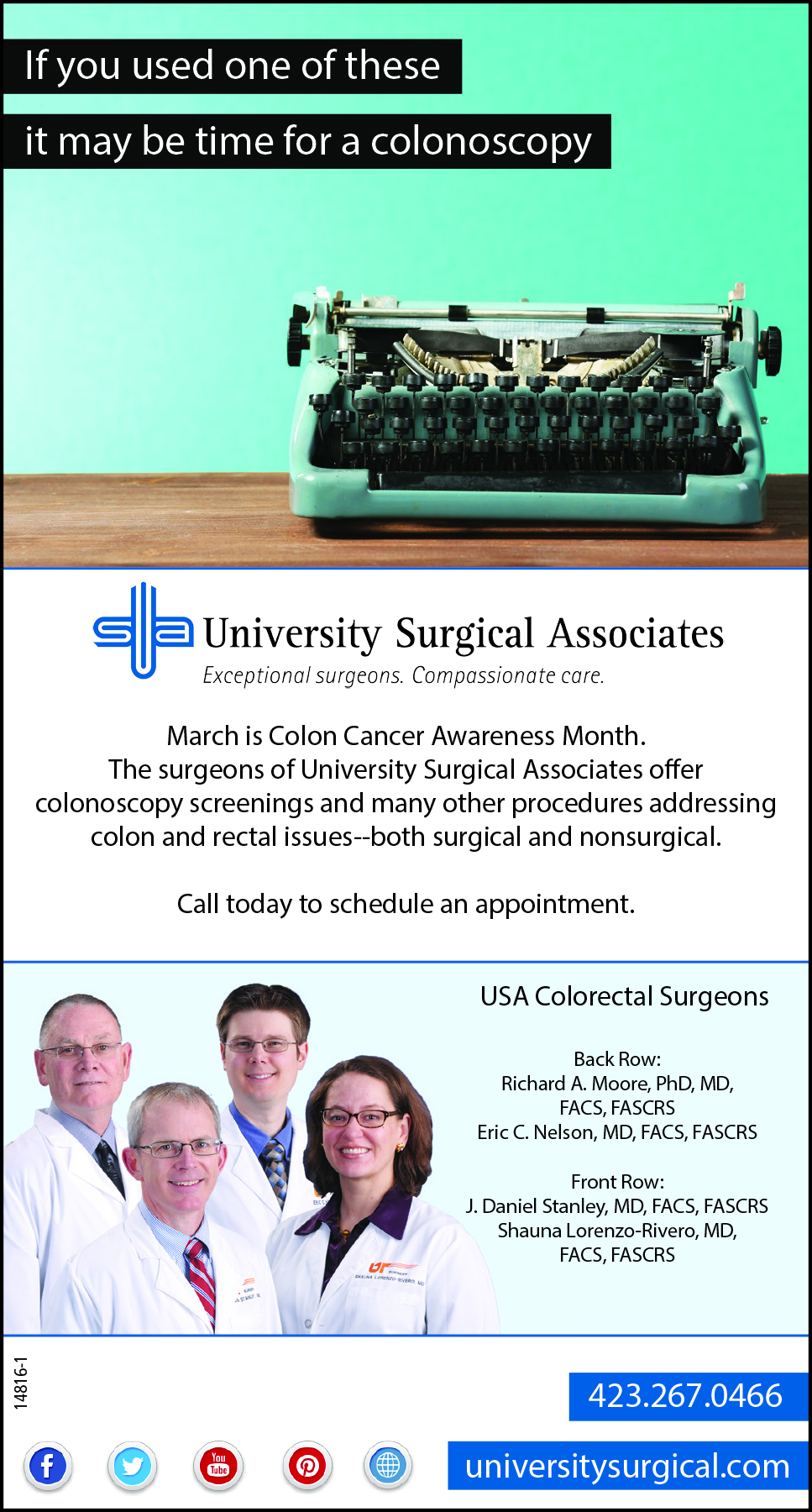The thought of colon cancer can be scary. It's the fourth most commonly occuring cancer in the United States, and nearly 5 percent of Americans will develop colorectal cancer in their lifetimes. This year, about 140,000 people will be diagnosed with colorectal cancer and 56,000 people will die from the disease.
March is Colon Cancer Awareness month, and the surgeons of University Surgical Associates encourage you to do something to help beat colon cancer before it starts: Get a colonoscopy screening.
"When it comes to colon cancer, you can prevent this terrible disease with one simple test – a colonoscopy," says Shauna Lorenzo-Rivero, MD, colorectal surgeon with University Surgical Associates. "Colon cancer is very easily detected and very successfully treated if caught early. But the fact is – in Tennessee, and in Chattanooga specifically – the rate of colon cancer is higher than the national average, particularly in the black community.
"You have to do the test to catch the cancer."
Is it Time for Your Colonoscopy?
Colon cancer has been called a silent disease because symptoms usually aren't present until the disease is more advanced. That's why the American Society of Colon and Rectal Surgeons recommends colonoscopy screenings beginning at age 50, and then every ten years for people with average risk of colorectal cancer. If you or any family members have had colon cancer or polyps, you should have a colonoscopy every five years.
The benefits of early detection and treatment are dramatic. Most colon cancers start as noncancerous growths called polyps. If these polyps are removed while they're still noncancerous, cancer may be prevented and major surgery can usually be avoided as well.
During a colonoscopy, the doctor uses a long, flexible, tubular instrument called a colonoscope, which transmits an image of the inside of the colon. It's inserted through the rectum and advanced to the other end of the large intestine so the doctor can examine it for abnormalities. If the doctor sees something abnormal, small amounts of tissue are removed for analysis and any growths can be identified and removed.
"Some people try to avoid colonoscopy because they are fearful of the procedure being painful or risky," says J. Daniel Stanley, MD, colorectal surgeon with University Surgical Associates. "Because a patient receives a heavy sedative the procedure itself is not uncomfortable and the risks of the procedure are outweighed by the risks of developing an undetected colon cancer."
Expertise you can trust
The colorectal surgeons at University Surgical Associates are experts in the surgical and nonsurgical treatment of colon and rectal problems and play an instrumental role in the effective screening, prevention and treatment of colorectal cancer. Studies have shown that patients treated by colorectal surgeons are more likely to survive colorectal cancer because of their advanced training and the large number of colon and rectal disease surgeries they perform.
DID YOU KNOW?
Most insurance plans cover routine screening colonoscopies.
Noteworthy:
"Some people try to avoid colonoscopy because they are fearful of the procedure being painful or risky. Because a patient receives a heavy sedative the procedure itself is not uncomfortable and the risks of the procedure are outweighed by the risks of developing an undetected colon cancer." – J. Daniel Stanley, MD, colorectal surgeon with University Surgical Associates
MORE INFORMATION
Find more information about colonoscopy screenings at the University Surgical booth at the 2017 Rump Run, a 5k and 1-mile run raising awareness for colon cancer and colonoscopy, at Enterprise South Nature Park March 11. Learn more at RumpRun.com. For more information about University Surgical, go to universitysurgical.com. To schedule your colonoscopy call 423- 267-0466.


